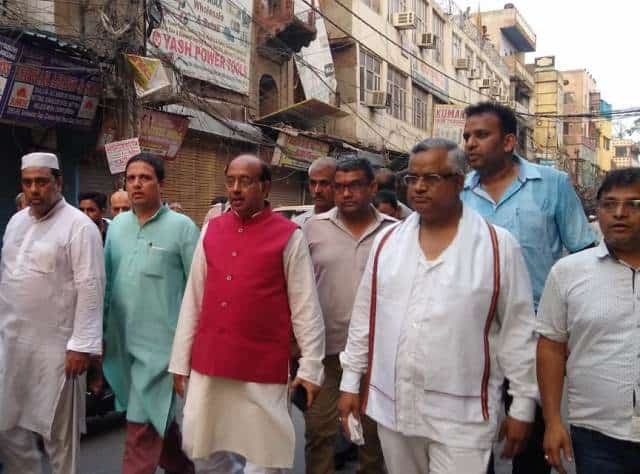
Month: July 2019

An IT Father Figure Hangs Up His Boots
Where families rule, be they in power or out of it, he has nominated his son as his successor, but has divided the latter’s clout and responsibilities into five entities among those outside the family. He will continue as non-executive director and founder chairman.
Where people chase wealth by means fair and foul, he has followed self-imposed work and business ethics for 53 years. He drove his Toyota Corolla till recently and travels Economy. He gets upset if an associate fudges travel bills, irrespective of the amount involved, to uphold work ethics. He once berated his staff for having him upgraded to Business Class till he was convinced that it was the airline that had made that unilateral gesture.
What makes Azim Hasham Premji stand apart is his philanthropic activities. India Inc. is not particularly famous for charity, nor are the rich in general. They engage in token charity to placate their conscience and earn public plaudits. Actually, billions remain frozen in religious endowments in the form of currency, gold and jewellery. That idle wealth is beyond the reach of the society.
Roughly, 34 per cent of shares held by companies controlled by Premji are earmarked to the Azim Premji Foundation (APF), taking the total donations to over Rs 1.4 trillion (USD 21 billion). The donation includes a 67 percent stake in his IT outsourcer, Wipro, worth $15 billion, plus assets including his stakes in consumer business Wipro Enterprises and PremjiInvest, his family office.
The APF works towards improving education in over 350,000 schools in seven Indian states. It also provides financial grants to other not-for-profit organisations. In March this year, he gifted an additional Rs 52.7 billion of the company’s shares –the most generous donation in the nation’s history. This will help the foundation scale up its activities several-fold, according to Forbes.
To give an idea of the scale of Premji’s charity, suffice it to say that India’s super wealthy households, or those with a net worth of over $50 million, are expected to double in both volume and wealth from 160,600 households with a total net worth of Rs. 1.53 trillion in 2017, to 330,400 households with a combined net worth of Rs.3.52 trillion in 2022. But a vast majority of them inherit their wealth and prefer to leave their money to family.
The remarkable thing is that it is Premji’s own money, not company funds. As the company’s executive chairman and MD, he has consistently given himself salary rises to keep control over his earnings so that he can divert it to charity without being subjected to any pressures. Nobody is saying this, but speaking generally, pressures from family and associates can be overbearing when one wants to engage in charity.
In India, philanthropy is done with caste/community considerations. Premji’s charity is not meant only for his largely impoverished community alone. In 2012, the Wall Street Journal called him the world’s richest Muslim entrepreneur outside of the Gulf region.
The newspaper titled its report: “How a Muslim Billionaire Thrives in Hindu India”. It quoted Premji as saying that such success shows globalization is turning into “two-way traffic” that can bring tangible benefits to developing countries.
“We have always seen ourselves as Indian. We’ve never seen ourselves as Hindus, or Muslims, or Christians or Buddhists,” Premji told the financial daily.
This is no empty rhetoric. On India’s Partition of India, the story goes, Mohammad Ali Jinnah, a fellow-Khoja, invited Azim’s father Hasham Premji to move to Pakistan. Hasham turned down the request and chose to remain in India.
Behind all this is the business acumen of a Gujarati and ethics of a Khoja Shia Muslim family. Hasham owned a vegetable oil product company. Azim cut short his study at Stanford and returned home following his father’s sudden death. Taking charge in 1966, at age 21, he retained Wipro, the acronym of the Western India Vegetable Products Limited founded in 1945, but transformed that small company to a $8.5 billion global tech firm. Wipro Enterprises also grew to a global FMCG, infrastructure engineering and medical devices producer with revenues of about $2 billion. It employs over 171,000 people.
The college dropout eventually graduated in the year 2000. He completed his bachelors of Science degree in electrical engineering from the same Stanford University 34 years later.
Premji’s famous quotes include one exhorting “play to win” and another, “failure is the biggest step to success.” He has combined them when and where required. Unlike what it should probably have done, Wipro has held off on firing all cylinders in the past few years and lost its third largest IT services firm position to HCL Technologies. Its revenues now stand at $8.12 billion as opposed to HCL Technologies’ $8.6 billion, $21 billion for TCS and $11.8 billion for Infosys.
Yet, an analysis by Mint newspaper noted that Premji was “…resolutely defiant of the Western market wisdom of sticking to a field of “core competence.” As an Indian business leader, he has always punted against the current. He was one of the first, if not the pioneering, leaders of the country s IT revolution. The opportunity was grabbed after IBM was ousted from India for selling reconditioned computers.
Steering Wipro away from business where margins were relatively secure to what was, in the 1970s and 1980s, still uncharted territory surely requires more than just gumption and a taste for risk a gift of vision.
Indeed, the story of India’s IT revolution is as much Wipro’s as it is of others. Premji rejected Narayan Murthy for a big job and the latter advanced his plans to turn an entrepreneur and launched Infosys.
Premji has been bothered about the fact that the IT business’ top managements haven’t been entirely stable and that growth has tended to plateau. Hence, he sought to consolidate Wipro’s achievements by ensuring a smooth succession. He sought out views from global management experts like late C K Prahalad and helped build the next level leadership, a younger one that can grow and think differently.
Although Wipro is not the biggest, Premji is certainly the father figure of the IT industry. Suresh Vasawani, Wipro’s former CEO, went on to lead Dell and IBM before starting his own venture capital and private equity fund.
According to a Bloomberg analysis, many industry leaders see in him the leadership style and business ethics that they want to emulate. Among them are Mindtree founders Krishnakumar Natarajan, Rostow Ravanan and Subroto Bagchi.
With his corporate mission achieved, Azim, as announced, can plan more philanthropy.
The writer can be reached at mahendraved07@gmail.com
]]>
Economic Survey Stresses On Investments
Union Minister for Finance and Corporate Affairs Sitharaman tabled the Economic Survey 2018-19 in Parliament on Thursday. The Survey has strongly emphasised the need to reduce the economic policy uncertainty in the country in order to foster a favourable investment climate. This factor has been termed especially important in the context of the Survey’s recommendations for shifting gears to an investment-driven growth model for the country.
The Survey has stated that higher economic policy uncertainty discourages investment while predictability of policy action and broad consistency in actual policy attract investment. While noting the reduction in economic policy uncertainty in India over the past decade, the Survey has given a set of recommendations to ensure that it stays at low levels in the coming years to ensure growth in investments.
ECONOMIC POLICY UNCERTAINTY IN INDIA
The Survey goes on to say that based on the globally recognised EPU Index, the Economic Policy Uncertainty in India has reduced significantly over the last decade. Economic Policy Uncertainty was the highest in 2011-12, coinciding with the years of policy paralysis. Since then, it has declined secularly, with intermittent increases in between.
The Survey also notes that Economic Policy Uncertainty in India moved in tandem with global uncertainty till 2014. However, it started diverging since early 2015 and seems to have completely decoupled in 2018. In recent times, while the economic policy uncertainty has been increasing across the world, including the US, UK, and China; India’s Economic Policy Uncertainty has been falling.
RELATIONSHIP OF EPU WITH INVESTMENT IN INDIA
The Survey notes that after falling for a decade since 2008, investment activity in India turned the corner since Q1 of 2017-18. Fixed Investment rates that fell from 37 per cent in 2007-08 to 27 per cent in the following ten years, recovered to 28 per cent recently. A secular trend of reducing EPU may have helped to foster the turnaround in investment activity.
The Survey further notes that Economic Policy Uncertainty also correlates strongly with the macroeconomic environment, business conditions and other economic variables that affect investment. Surges in Economic Policy Uncertainty increase the systematic risk, and thereby the cost of capital in the economy. As a result, higher economic policy uncertainty lowers investment, especially because of the irreversibility of investment. Consistent with this thesis, an increase in economic policy uncertainty dampens investment growth in India for about five quarters.
POLICY RECOMMENDATIONS
The Survey notes that unlike generic economic uncertainty, which cannot be controlled, policymakers can reduce economic policy uncertainty to foster a salutary investment climate in the country. In view of the above, it has made the following recommendations for policy changes.
First, policymakers’ must make their actions predictable, provide forward guidance on the stance of policy, and reduce ambiguity/arbitrariness in policy implementation and maintain broad consistency in actual policy.
To ensure predictability, the horizon over which policies will not be changed must be mandatorily specified so that investor can be provided the assurance about future policy certainty. The Government could also use labels such as “Standstill” versus “Ratchet up” to categorize various categories of policies according to the level of commitment about future certainty that it can provide.
Second, “what gets measured gets acted upon.” So, Economic Policy Uncertainty index must be tracked at the highest level on a quarterly basis. The government must also encourage construction of Economic Policy Uncertainty sub-indices to capture uncertainty stemming from fiscal policy, tax policy, monetary policy, trade policy, and banking policy.
Finally, quality assurance of processes in policy making must be implemented in Government via international quality certifications. The adage of “Document what you do, but more critically do what you document!” must be implemented in the government. The process of certification will require training of personnel in following quality assurance processes and will significantly reduce economic policy uncertainty.
(ANI)
]]>
Key Highlights Of Economic Survey '18-19
* India is still the fastest growing major economy in 2018-19.
* Growth of GDP moderated to 6.8 per cent in 2018-19 from 7.2 per cent in 2017-18.
* Inflation contained at 3.4 per cent in 2018-19.
* Non-Performing Assets as percentage of Gross Advances reduced to 10.1 per cent at end December 2018 from 11.5 per cent at end March 2018.
* Investment growth recovering since 2017-18
* Growth in fixed investment picked up from 8.3 per cent in 2016-17 to 9.3 per cent next year and further to 10.0 per cent in 2018-19
* Current account deficit manageable at 2.1 percent of GDP
* Fiscal deficit of Central Government declined from 3.5 percent of GDP in 2017-18 to 3.4 percent in 2018-19.
* Prospects of a pickup in growth in 2019-20 on the back of a further increase in private investment and acceleration in consumption.
FISCAL DEVELOPMENTS
* FY 2018-19 ended with fiscal deficit at 3.4 per cent of GDP and debt to GDP ratio of 44.5 per cent (Provisional).
* As per cent of GDP, total Central Government expenditure fell by 0.3 percentage points in 2018-19 PA over 2017-18:
* 0.4 percentage point reduction in revenue expenditure and 0.1 percentage point increase in capital expenditure.
* States’ own tax and non-tax revenue displays robust growth in 2017-18 RE and envisaged to be maintained in 2018-19 BE.
* The revised fiscal glide path envisages achieving fiscal deficit of 3 per cent of GDP by FY 2020-21 and Central Government debt to 40 per cent of GDP by 2024-25.
MONEY MANAGEMENT AND FINANCIAL INTERMEDIATION
* Banking system improved as NPA ratios declined and credit growth accelerated.
* Insolvency and Bankruptcy Code led to recovery and resolution of significant amount of distressed assets and improved business culture.
* Till March 31, 2019, the CIRP yielded a resolution of 94 cases involving claims worth Rs 1,73,359 crore.
* As on 28 Feb 2019, 6079 cases involving INR2.84 lakh crores have been withdrawn.
* As per RBI reports, Rs 50,000 crore received by banks from previously non-performing accounts.
* Additional Rs 50,000 crore “upgraded” from non-standard to standard assets.
* Benchmark policy rate first hiked by 50 bps and later reduced by 75 bps last year.
* Capital mobilised through public equity issuance declined by 81 per cent in 2018-19.
* Credit growth rate y-o-y of the NBFCs declined from 30 per cent in March 2018 to 9 per cent in March 2019.
PRICES AND INFLATION
* Headline inflation based on CPI-C continuing on its declining trend for fifth straight financial year remained below 4.0 per cent in the last two years.
* Food inflation based on Consumer Food Price Index (CFPI) also continuing on its declining trend for fifth financial year has remained below 2.0 per cent for the last two consecutive years.
* CPI-C based core inflation (CPI excluding the food and fuel group) has now started declining since March 2019 after increment during FY 2018-19 as compared to FY 2017-18.
(ANI)
]]>
I'm No Longer Cong Prez, Rahul Repeats
“The party should decide on the new president quickly without further delay, I am nowhere in this process. I have already submitted my resignation and I am no longer the party president. CWC should convene a meeting at the earliest and decide,” Gandhi told reporters in the parliament.
The Wayanad lawmaker, who became the Congress president in 2017, offered to step down from his post at the Congress Working Committee (CWC) meeting on May 25, taking moral responsibility for the Congress’ abysmal performance in the 17th Lok Sabha Elections.
However, his resignation was unanimously rejected by the CWC. So far, several top leaders have met Gandhi and urged him to continue to lead the party.
Despite senior members making serious attempts to convince the 49-year-old to rethink his decision, he has remained unfazed.
The Congress won 52 seats in the recent general elections, which is just eight more than what the party won in 2014 polls.
Supporters sat on a strike outside party headquarters on Tuesday, urging Gandhi to rescind his resignation.
(ANI)
]]>Pak Books Hafiz For Terror Financing
Express Tribune reported that the cases were filed against Saeed and other members of his UN designated Jaish-e-Mohammed (JeM).
The CTD has accused the men of ‘promoting terrorism and raising funds to facilitate terror activities.’
As per the charges, these proscribed outfits were operating under the guise of charities and were involved in funnelling funds to terror suspects.
Cases were registered under the Anti-Terrorism Act against five proscribed outfits in Lahore, Gujranwala, and Multan – Dawatul Irshad Trust, Moaz Bin Jabal Trust, Al Anfaal Trust, Al Madina Foundation Trust, and Alhamd Trust.
The action came ahead of the crucial financial bailout meeting between Pakistan and the International Monetary Fund in Washington today.
The executive board of IMF is expected to decide the fate of the proposed USD six billion bailout package to Pakistan today.
Earlier in February, Pakistan had re-instated a ban on two charities linked to Saeed, namely Jamat-ud-Dawa and its charity wing Falah-e-Insaniat Foundation, amid global pressure to clamp down on the terror groups following the Pulwama terror attack that killed 40 CRPF personnel.
Saeed has been a mastermind behind numerous terror attacks, including 26/11 attacks on Mumbai in 2008 that killed scores of people.
Washington also announced a USD10 million bounty on his head.
(ANI)
]]>
Watch – Water Crisis Hits Urban India
Water crisis is no longer limited to arid patches of remote India. Bustling metropolitan cities, like Chennai and NCR, reel under shortage of potable water. LokMarg visited Seemapuri at Delhi border to record these hardships.
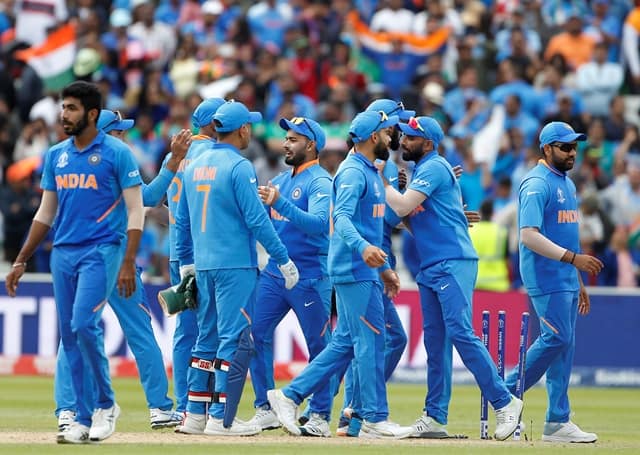
India Beat Bangladesh To Enter CWC Semis
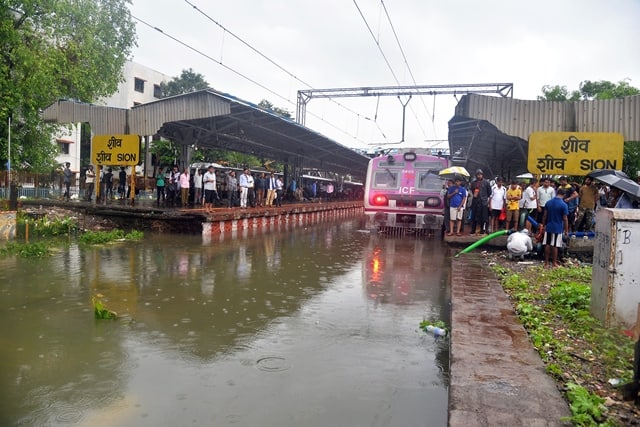
Heavy Rains Hit Mumbai Local Service
